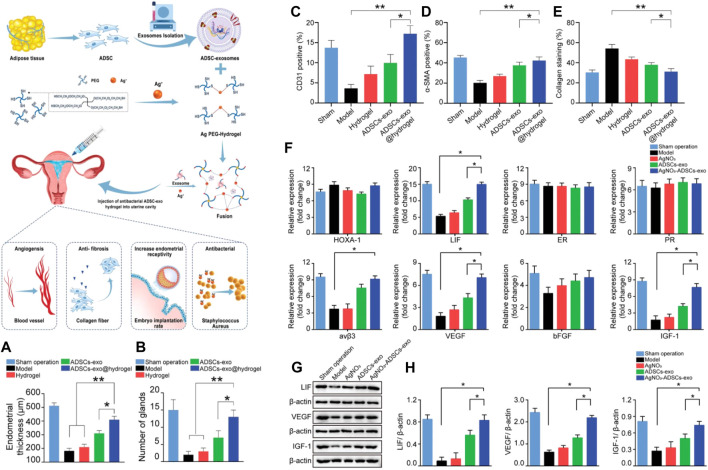FIGURE 6.
Schematic overview of the development of an ADSC-exo hydrogel for endometrial regeneration. (A) Endometrial thicknesses in each group. (B) Numbers of glands in each group. Administration of ADSC-exos or AgNO3+ADSCs-exo promotes endometrial neovascularization, myometrial regeneration, and reduced endometrial collagen deposition. (C–E) Quantification of CD31, α-SMA, and collagen protein expression levels. The impact of ADSCs-exo and hydrogel transplantation on the expression of markers of endometrial receptivity and angiogenesis. (F) A qRT-PCR approach was used to assess the expression of markers of endometrial receptivity (HOXA-1, LIF, ER, PR, Integrin β3, IGF-1) and angiogenesis (VEGF, bFGF), with β-actin serving as a normalization control. (G) Western blotting was used to assess LIF, VEGF, and IGF-1 protein expression in each treatment group. (H) Western blotting data of the levels of LIF, VEGF, and IGF-1 in different treatment groups. Data are shown relative to internal reference controls. Data are means ± standard error, n = 5. *p < 0.05, **p < 0.01. Reproduced with permission from ref (Lin et al., 2021). Copyright 2021 Wiley-VCH GmbH.

